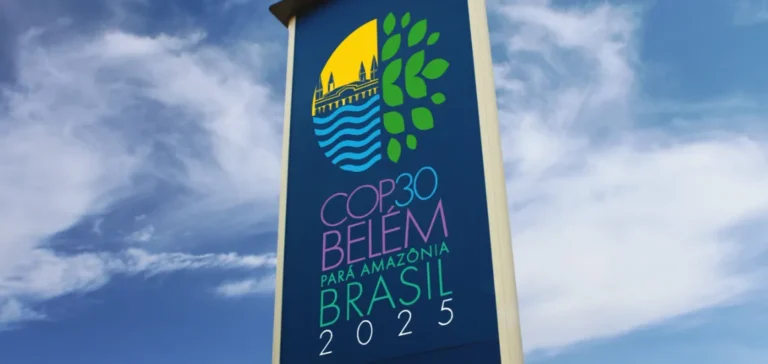Brazil, host of the upcoming 30th Conference of the Parties (Cop 30), intends to use the global stocktake adopted at Cop 28 as a lever to strengthen international cooperation. The commitments made in Dubai, particularly on renewable energy and phasing out fossil fuels, now serve as a diplomatic reference point after formal talks failed to progress at the last session in Baku.
Towards operational climate diplomacy
In Dubai, nearly 200 states and jurisdictions approved the conclusions of the first Global Stocktake (GST), established under the Paris Agreement. This document calls for tripling global renewable energy capacity and organising a “just, orderly and equitable” transition away from fossil fuels. Brazil now seeks to transform these commitments into catalysts for concrete initiatives, in the absence of binding international consensus.
The lack of agreement on integrating these decisions into the formal Cop 30 agenda has led the presidency to explore diplomatic solutions outside the conventional framework. The handling of upcoming nationally determined contributions (NDCs), as well as the $1.3tn annual financing for developing countries, are also excluded from the official talks.
A multisectoral diplomatic approach
The Brazilian presidency has structured its approach around six thematic axes and thirty objectives directly linked to the GST. Among them, the transition of energy, industry and transport systems is based on four commitments: tripling renewable capacities, doubling energy efficiency, promoting low-emission technologies in hard-to-abate sectors, and guaranteeing universal access to energy.
The other axes focus on forest and ocean preservation, food systems, resilient infrastructure, human development, and a cross-cutting pillar dedicated to finance and technology. The goal is to gather contributions from at least 30 groups of international stakeholders ahead of Cop 30.
Private sector mobilisation expected
Each objective is expected to deliver three or four concrete solutions. For the energy pillar, the presidency proposes focusing efforts on power grid expansion, securing critical mineral supply chains, and improving the efficiency of cooling equipment. Acceleration plans are due to be presented in October.
The platform will also include existing commitments such as the “Oil and Gas Decarbonisation Charter”, which has been deemed insufficient by several international agencies, along with the “Oil and Gas Methane Partnership 2.0” and the “Fossil Fuel Non-Proliferation Treaty”. Brazil aims to capitalise on more than 300 active climate initiatives inherited from previous conferences.






















